Kalkudah to Arugam Bay and some canny decision making by JRJ – The Island
CONFESSIONS OF A GLOBE GYPSY
Dr. Chandana (Chandi) Jayawardena DPhil
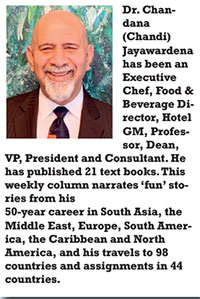
President – Chandi J. Associates Inc. Canada, Consulting
Founder & Administrator – Global Hospitality Forum
[email protected]
During my three years as the Director of Food & Beverage at the 500-room five-star hotel – Le Galadari Meridien in Colombo, I boldly tried out some “unorthodox” business tactics. After a number of years as an International Hotel General Manager, I began to experiment and refine a few ideas that helped me in my mid-career. A few of these “unorthodox” methods failed or were rejected as unethical, but most worked well in improving our revenues, profits and team spirit. Below are some examples.
BANQUET SPY
In the 1980s seven international branded hotels competed in Colombo for wedding business. The hotels competed also for corporate events, entertainment, and social business. Each property hosted 70 events or weddings on average.
With the opening of the Colombo Hilton in 1988, Le Galadari Meridien’s position as the leader in banquet business in Colombo was challenged. Colombo’s culture was to choose the most luxurious five-star hotel available for high-end events. A key member of my management team – the Banquet Manager led the operational aspects of that department and sales related to the wedding business. A colleague of mine of the seven-member executive committee of the hotel, the Director of Sales led the hotels’ sales team to increase corporate banquet sales. For the mutual benefit of both our divisions, we worked closely together.
For success in the wedding business, the key was having the ‘personal touch’ with each wedding irrespective of the size of the reception. Although it wasn’t unusual for us to handle 4 weddings per day, this was the highlight of our lives as a banquet staff. They needed us to take the time to get to know them and nurture their relationships. We also had a responsibility for looking after all details. That was possible to an enormous extent.
We increased our focus on detail, customer service and public relations when it came to corporate events. But that wasn’t enough. I told the key members of the banquet team and the sales team, that we needed to ‘think outside the box’ to continue our success in corporate banquet business. That was what I wanted to do.
Le Galadari Meridien, like all major rivals in the banquet industry, had a substantial pool of casual waiters who worked on a weekly basis depending on what bookings were being made. I was a casual waiter at a London five-star hotel for four years before that. It is something that I appreciate greatly. All casual banquet waiters were interviewed by me, the Banquet Manager, the Training Manager and Director of Human Resources. They were trained well after the selection and the top ones were eventually promoted to permanent cadre.
An applicant was applying for a position as a casual bartender. I found him impressive at the interview. He had one year of experience as a banquet waiter at a five-star small hotel. The interview went well. He spoke fluent English, was clean-cut and well dressed. A second-hand motorcycle was his pride and joy, which was quite a feat for an 20 year old Sri Lankan. Because he could come to work fast from his house, even when there was traffic jammed at rush hour, it would have been a huge advantage. He had an excellent photographic memory, which I discovered after he was hired. I invited him to come and meet with me in my office for a personal meeting.
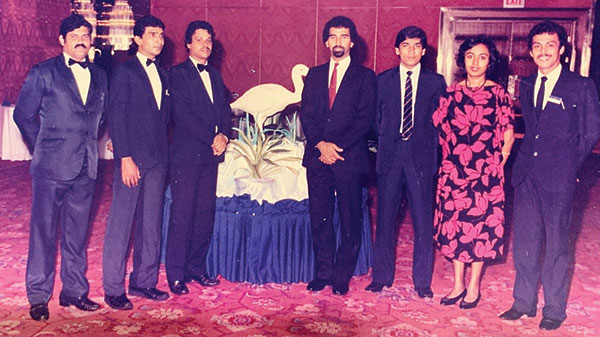
Competitive intelligence has always been something that I believe in. When I read a few books about Japanese companies that were forward-looking and had knowledge of the competition, it fascinated me. This involves systematic gathering and analysis from many sources. Competitive intelligence is crucial in all aspects of competition, whether it be in business or war.
It was a common practice for Le Meridien’s nine rivals in Colombo to have a signboard in their lobby listing the details of every banquet that had been held that day. It was designed to point customers in the right direction to various meeting and ballrooms. The signboard was updated every night, listing details like the host and the type of event as well as venue information.
He was anxious when the part-time, newly-recrured banquet waiter arrived at my office to meet with me. Slowly, I explained to him my smart plan. He was able to understand why I asked him to visit every competitor each morning to collect information on all social and corporate events that were being held. His overtime was paid for for four hours per day. I also reimbursed him for the gas costs for his motor bike. After he had returned from his trip, he continued to serve at banquets until he retired. He was the only one who knew of my secret deal. It was a top-secret mission and he was my “spy”!
For this job, he dressed professionally and only spent fifteen minutes at each stop. He followed the same routine per competitor every morning – starting with a quick glance at the banquet sign board. Next, he would go to the public bathroom in the lobby. There he would record every detail of each banquet in a little notepad. His name is not allowed because he is today a top hotelier in Sri Lanka.
Each weekday around 12 noon I would review the information he collected. This initiative gave me a good overview of previous corporate banquet customers of our hotel who were using competitors facilities as well as information about new business opportunities and businesses. I was able to use this data to help the sales staff decide who they should target and how to market to them to expand our business. It worked great.
INTERNATIONAL SALES
My team was able to master our outside sales for the room, restaurant and food festival business as well as stage productions. We used creative media advertising, direct mail, public relations, special promotions, and regular sales calls to promote our products. Also, I started focusing on the internal sales promotion by using lobby posters and elevator displays, food and wine displays and other tricks.
The competition I created was open to any service worker in one of the ten hotel food and drink outlets. It was intended to boost food and beverage sales. When I brain stormed with the Maître d’hôtel (restaurant managers), the team members managing the more expensive outlets with higher average checks were happy. Some others thought it wouldn’t be fair if the winner was determined based upon total sales.
At that point, I explained the criteria for the competition – teams were competing and not individual employees. The winners will be determined based on how much the average check has improved over the preceding year and not on total revenue. We all agreed that the competition we fostered exceeded my expectations and targets.
I arranged for the Food and Beverage Analyst and the Food & Beverage Controller to provide a weekly leader analysis of the competition, during each weekly food and beverage team meetings. With the training department, I arranged special training on ‘up-selling’ food and beverage products. This program not only improved revenue and profits but it also enhanced the team spirit. We increased the average check by 15% that year!
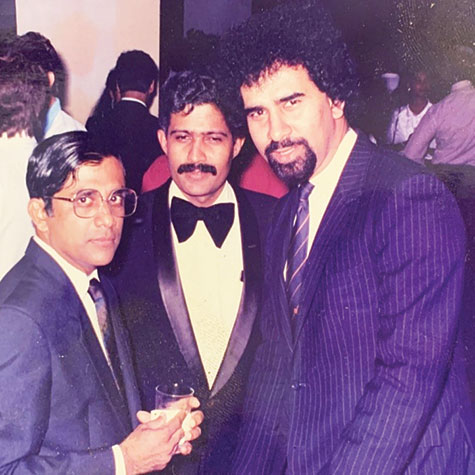 COMMUNICATION FLOW
COMMUNICATION FLOW
Often in large units/hotels with 600/700 or more employees in several divisions and departments, the communication flow tends to slow down and at times, gets ‘lost in translation’. Once decisions have been made by the executive board and the list of those who need to be informed has been established, communication must flow lightning fast and effectively. Division heads need to develop processes that allow for the condensed, yet interesting version of key messages to flow smoothly. The accuracy and speed with which information flows was crucial.
At Le Meridien the seven members of the executive committee (General Manager, Director of Rooms Division, Director of Food & Beverage, Financial Controller, Director of Human Resources, Director of Sales and Director of Engineering) had their weekly meeting every Tuesday at 4:00 pm. My team members did not need long memos. I wanted to explain key decisions from the executive committee meeting to them. That was what I desired to accomplish face-to-face and in a short time.
Therefore, I arranged for the weekly Food & Beverage Management meeting to be held every Wednesday morning. My management team would receive all information regarding the Executive Committee meeting and any decisions made. The meeting was kept short, and I made sure that all minutes were sent out within one hour. Every Wednesday, my 10 department heads met for a quick, informal briefing. They also had their operations teams meet at 3:00pm. As a result, all 230 staff in my division were aware of key ‘must know’ information of the week within 24 hours.
When the General Manager of the hotel visited the coffee shop around 3:30 on Wednesday afternoon, he was surprised at how informed the busboy clearing his table was. An employee said that employees were happy about a company decision that was made a day prior.
“How did you do that so fast, Chandi?”, the pleasantly surprised General Manager asked me. “That decision was made in Paris by the Le Meridien President on Tuesday morning, my boss, the VP – Asia sent me a fax about it on Tuesday afternoon from Singapore, and I informed you and the other EXCO members in Colombo about it less than 24 hours ago. Now a busboy in your coffee shop knows about that decision!” he added in a voice that blended happiness with amazement. He was impressed.
CREATING THE ‘BUZZ’
In any business, a key for success is creating the ‘buzz’ through creative messaging to motivate and empower teams. If people feel valued, treated and communicated well with, then they are more likely to be excited about the company’s products and services. That is simply a “win-win” situation.
At Le Meridien we did exactly that well, with our internal customer – the employees. Due to the important role of a number of western top musicians who provide live music seven days a semaine in three venues, I considered them part of my hotel family. The musicians became ambassadors and partners of our hotel for many of their followers. It was simple.
We used the same concept of creating the ‘buzz’ in promoting every food festival, theme night and stage show we organized. Sales and public relations shouldn’t be done by a single salesperson. They should involve all members of staff, as well other service providers like suppliers, sponsors and entertainers. As a result, we were always in the limelight and the ‘talk of the town’,
In addition to a host of younger artistes and bands who performed at the night club and the lobby bar at Le Meridien, we decided to do something different at our prime restaurant – La Palme D’or. The band was led by an experienced musician, who I found to be a top choice for a niche market. That band – Harold Seneviratne Combo was requested to provide music appropriate to a weekly theme night called: ‘Nostalgia ‘60’, which had to be extended by popular demand.
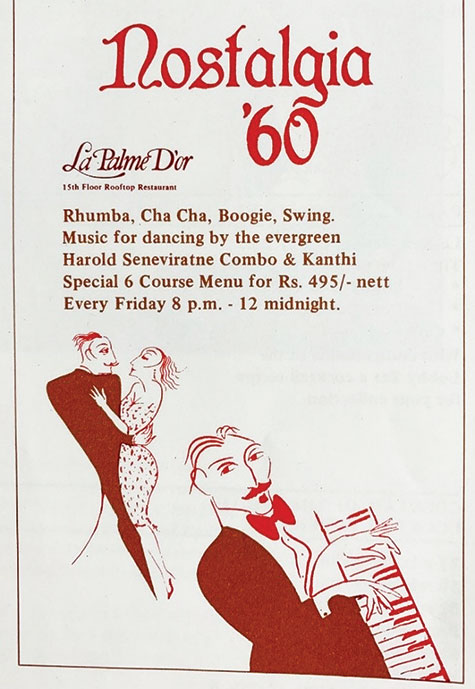
GRAY LIE
There were no fast food chains in Sri Lanka at the end of 1980. Some five-star hotels offered a la carte meals in their coffee shops, including hamburgers and pizzas. This was a popular choice, especially in Colombo. With a view of riding that wave, I planned a month-long hamburger promotion at La Brasserie, hotel’s coffee shop. Our goal was to create a unique advertising campaign.
The new General Manager of the hotel, Paul Finnegan told me, “I hear that our main competitor – Colombo Hilton is planning a similar Hamburger promotion in two months’ time. Can you organize this promotion sooner?” I agreed with him and placed it on a fast track. He suggested we create a story about Le Meridien’s plans to set a new world record for the most hamburgers served in April 1989. I didn’t like the idea of lying about the world record.
“Come on, Chandi. This would be a lot of fun. Why don’t you use your creative mind to come up with something newsworthy, interesting and gives us a lot of publicity?” Paul motivated me to lie. I knew that ‘Gray lies’ were said to consist of lies that were ambiguous in nature or held the characteristics of a real lie yet, were still viewed as justifiable given the circumstance. With the blessings of my boss who was a chartered accountant, I worked on an interesting and ‘fun’ advertising campaign to promote ten special hamburger dishes created by our Executive Chef, Emile Castillo.
The campaign story was created with Herman Gunasekera’s input. He is the Managing Director at Creative Services Limited and has all the advertisements for Le Galadari Meridien. It claimed: “The Guinness Book of World Records lists 50,429 hamburgers sold during the month of July, 1986 at O’Malley’s Downtown Pub in Chicago, as the current world record. La Brasserie Coffee Shop of Le Galadari Meridien Hotel aims to break that world record during the month of April, 1989.”
To break that ‘fake’ world record, we had to serve over 1,681 hamburgers a day, which was an impossible target. I did however arrange a blackboard prominently displayed at La Brasserie, with a heading.
‘OUR PERFORMANCE SO FAR TO BREAK A WORLD RECORD IN HAMBURGER SALES…’
Only three lines were left on the board.
World Record = 50.429 in One Month
La Brasserie served Hamburgers in April
=Balance number of Hamburgers we need to serve in April to break the world record =
I then gave ‘fake’ daily hamburger sales numbers to Christopher Ramsey, maître d’hôtel of La Brasserie. In an attempt, to sound real, I gave him different ‘fake’ numbers every day. It was his job to put those numbers on the board each day at the close of every day. This joke or the gimmick created so much ‘buzz’ and media publicity, we actually sold a large number of hamburgers. The number that I supplied was enough to surpass the world record of 30 hamburgers by April 30, 2010. The hamburger promotion was given unprecedented attention and extended for another month. This was the last time I organized a food promotion in Colombo.
Athula Senanayake, one of my school friends, called me in May 1989. He had been promoted as the Food & Beverage Manager of Colombo Hilton, a few months prior to that. “Chandana, congratulations on your latest achievement! You are making me feel bad. He asked me this question during my morning briefing.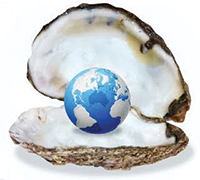 me when would I be able to break a world record!”, Athula told me in a frustrated voice. His annoyance was reflected in my laughter.
me when would I be able to break a world record!”, Athula told me in a frustrated voice. His annoyance was reflected in my laughter.
“Machan, don’t worry too much. “We never set a new world record. This was all fake. A joke which resulted in lot of publicity.” I told my friend. After a long pause, Athula said angrily, ‘You lying bastard! I had a terrible month because of your bloody hamburger promotion! Shame on you!”
FINAL ‘CONFESSIONS…’ ARTICLE
This concludes the article after one additional article, which was posted Feb. 26.
weekly column: ‘Confessions of a Global Gypsy’ will be published on Mar. 5. By the Sunday Island. Thanks for reading the newsletter over the past two years.